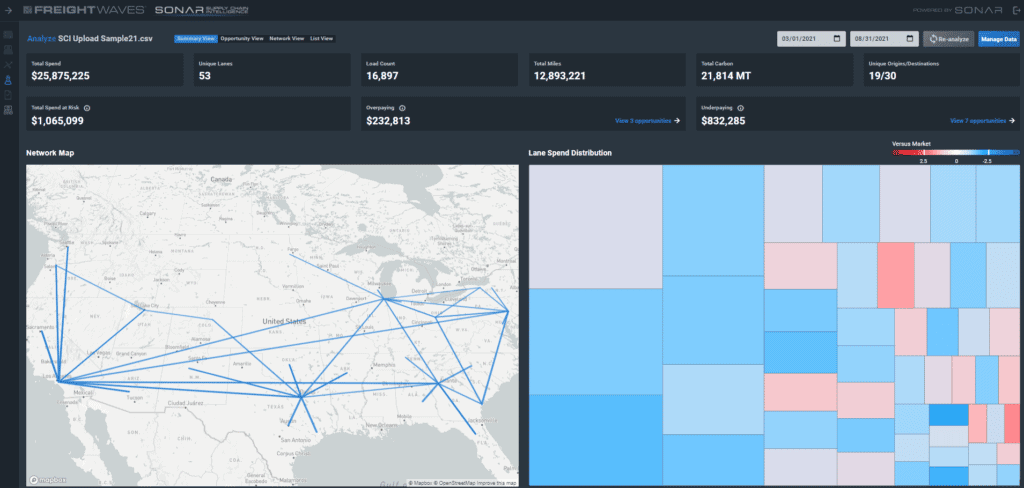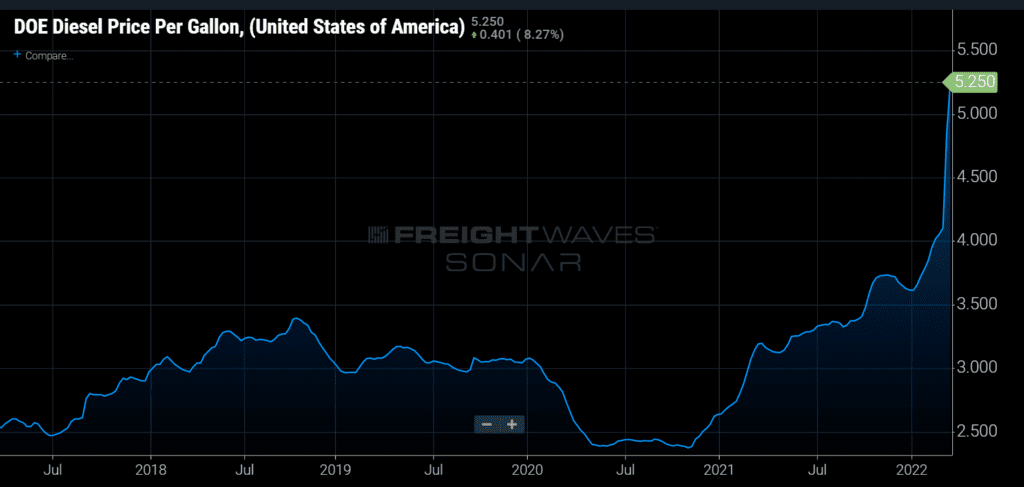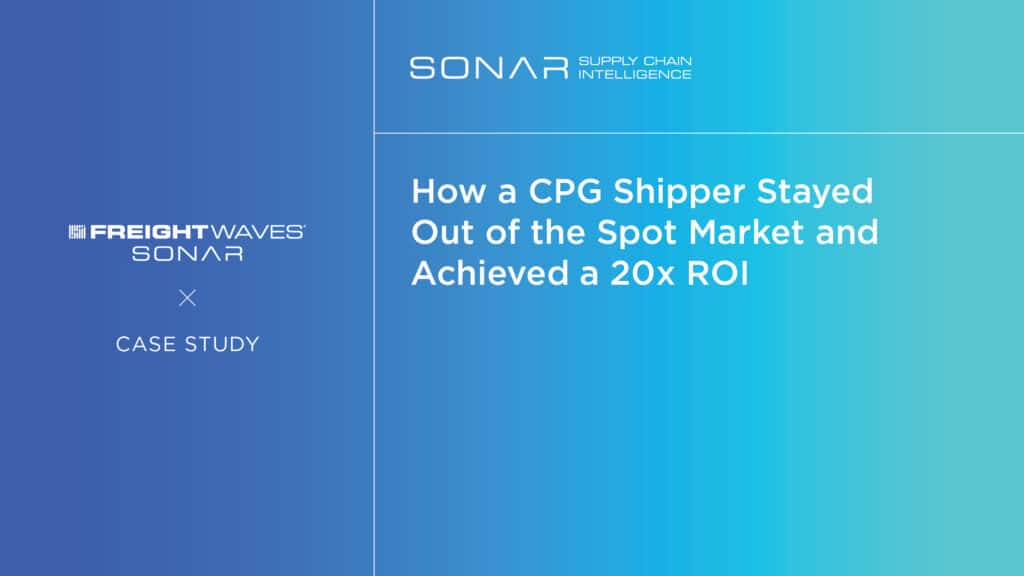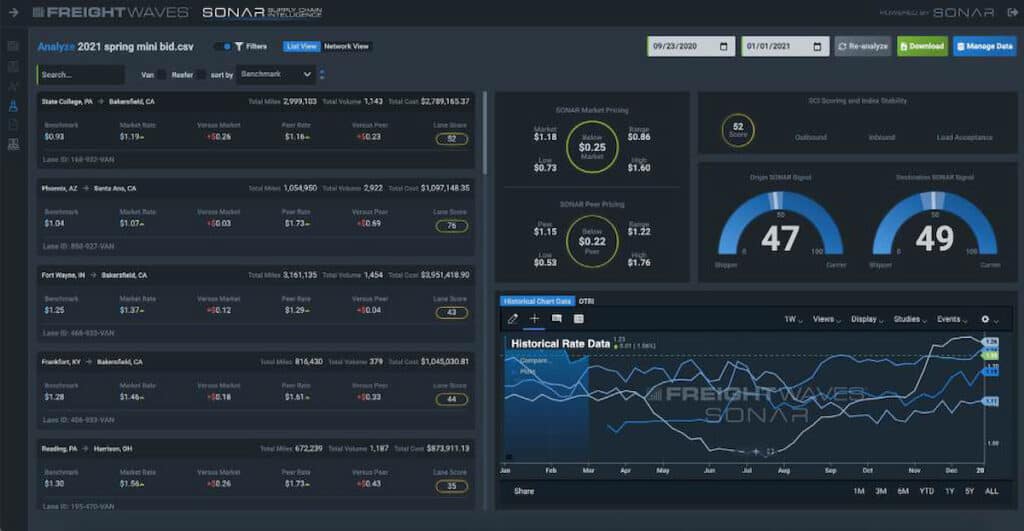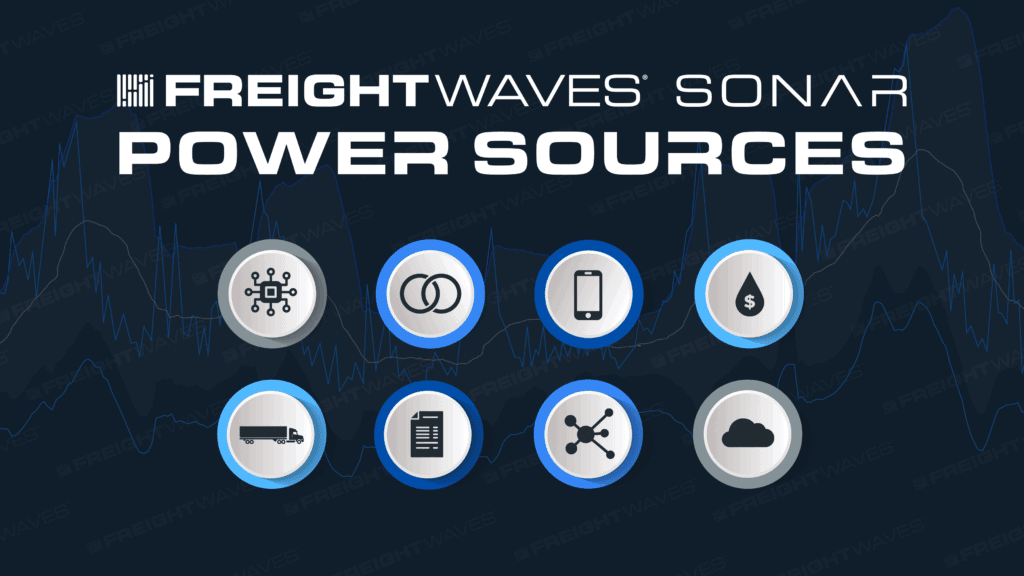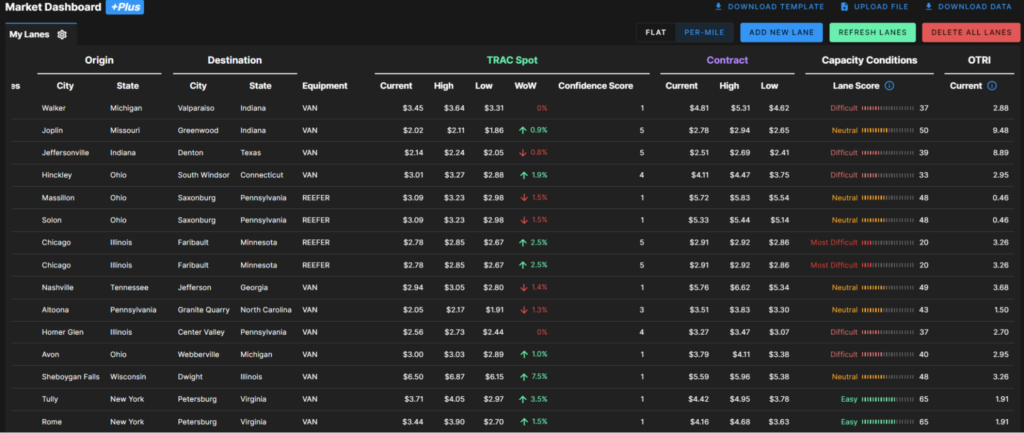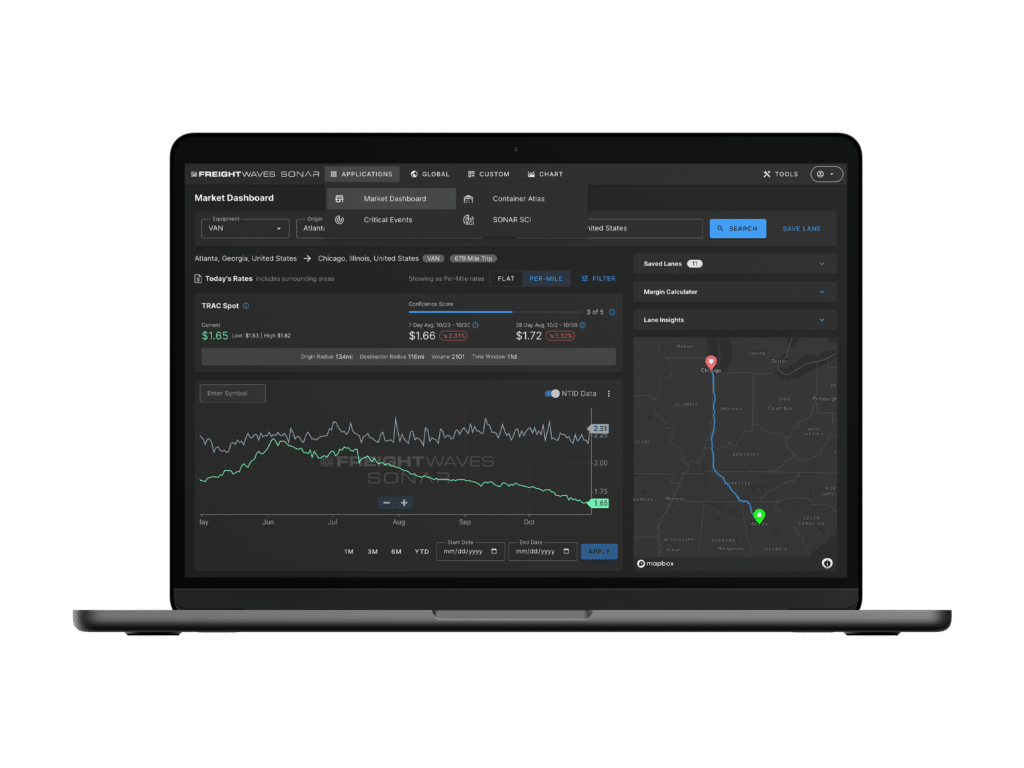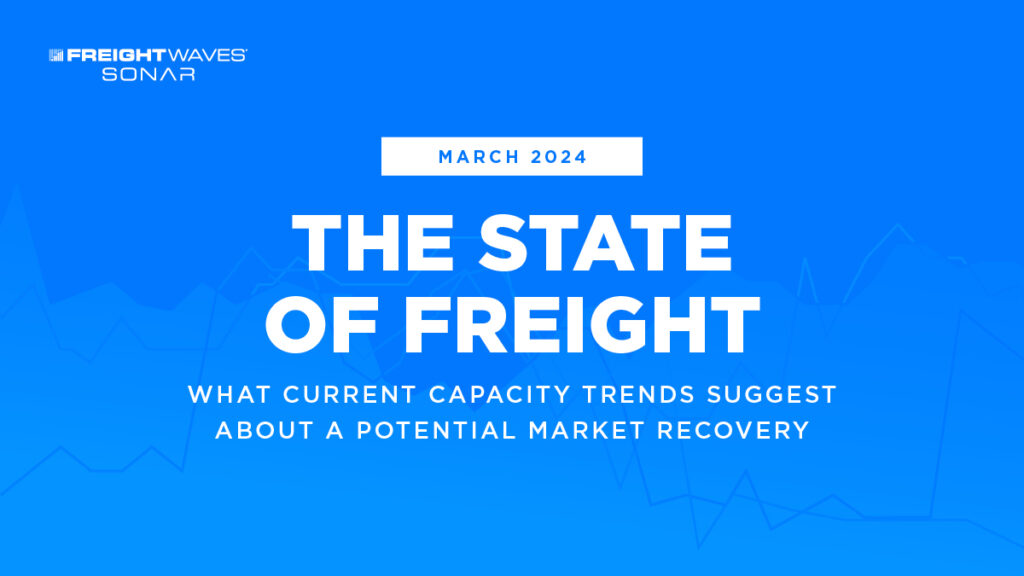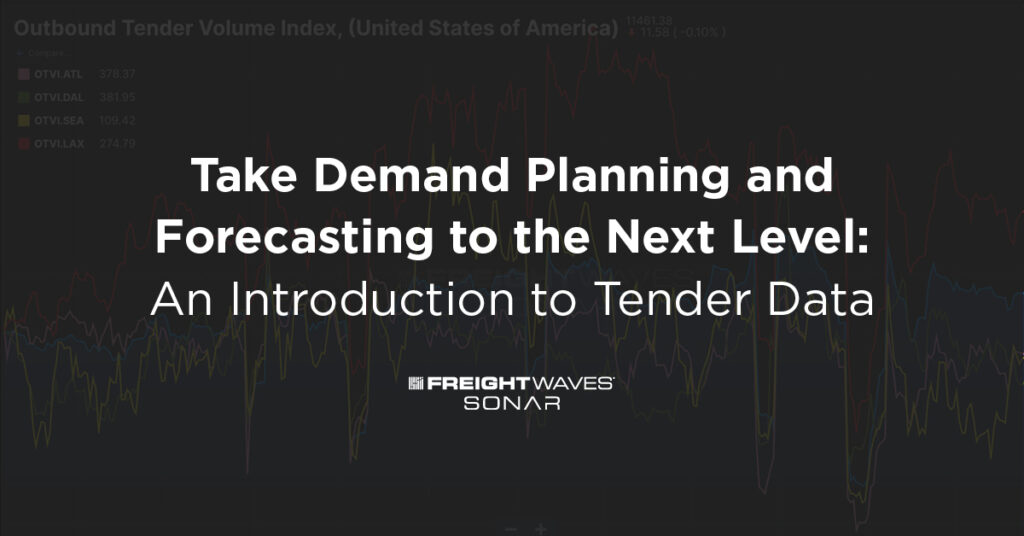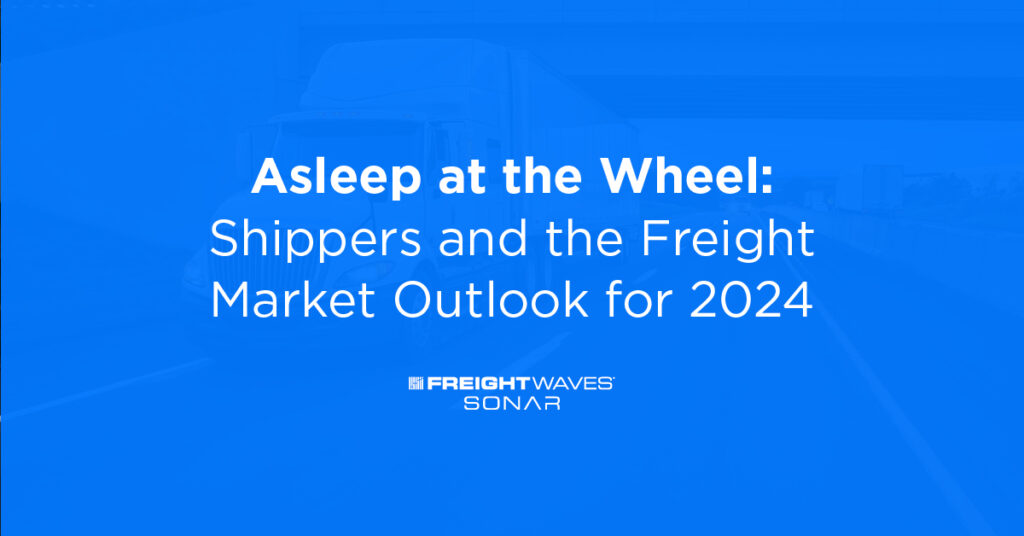The FreightWaves SONAR Supply Chain Intelligence (SCI) platform now features emissions calculations that are compliant with the GLEC Framework, deepening its carbon intelligence data. The Global Logistics Emissions Council (GLEC) provides a robust, internationally accepted framework for calculating supply chain carbon emissions. The framework is used by shippers, carriers and logistics service providers around the world to help make business decisions that reduce emissions and track progress toward climate goals.
FreightWaves has adopted the GLEC calculation methodology. This enhancement will make it easier for companies to use the SONAR SCI carbon intelligence data across multiple mediums and know that parties across the globe will understand and trust the source information without requiring deeper explanation.
Carbon emissions calculations were part of the SONAR SCI application when it was introduced in April. Now that calculation is a step closer to being universally accepted.
SONAR SCI ingests truckload data and calculates total carbon emissions in metric tons based on, but not limited to, mileage and load count information at an aggregate and lane-level detail. SONAR SCI also has rate benchmarking and network analysis capabilities, making it a one-stop shop for measuring trucking network effectiveness.


